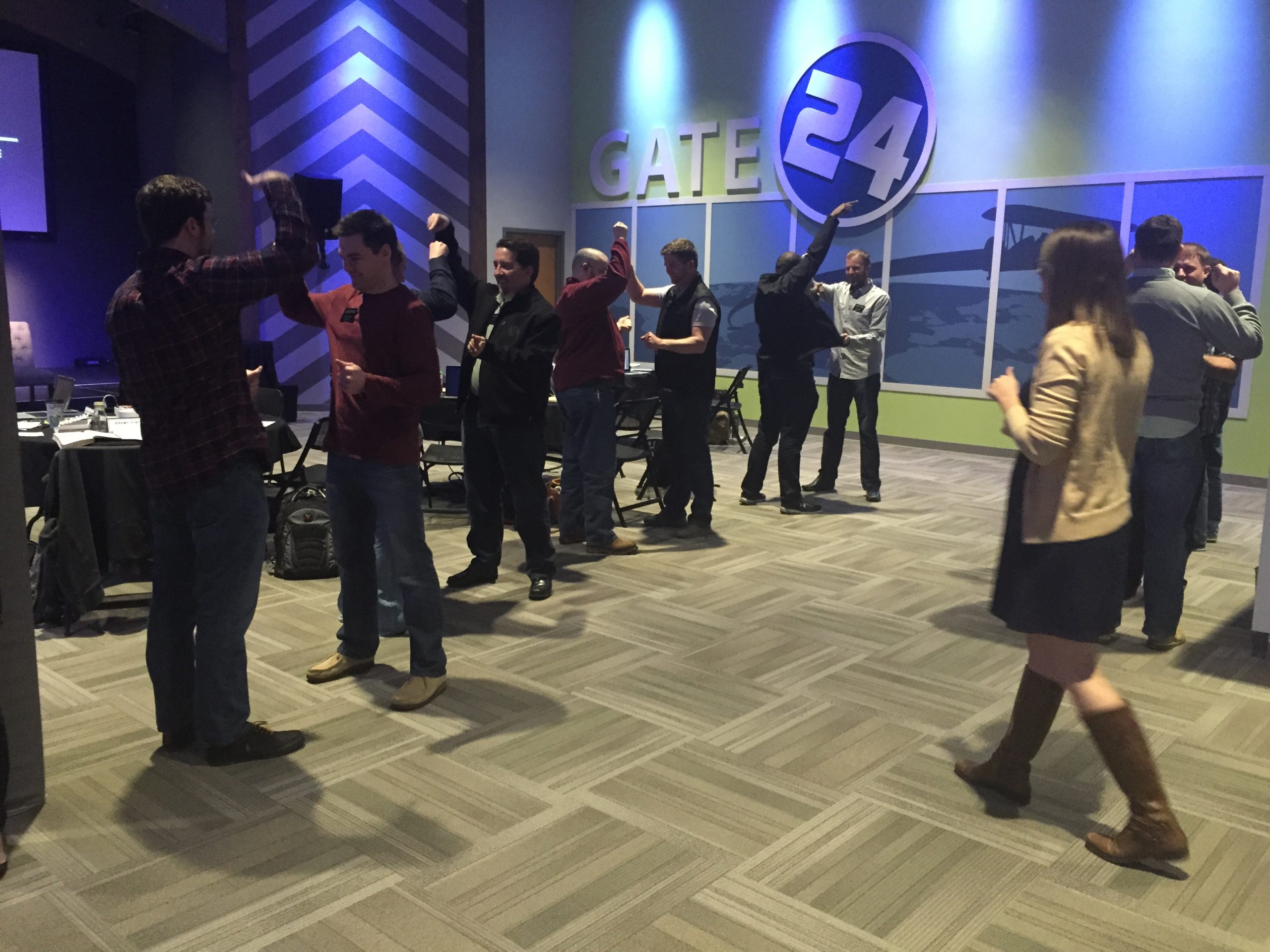The Training Game

There are two types of churches when it comes to the training of volunteers: those who actually do it well, and those who really really really need to do it (really). And yes, I’m painting all churches with a broad brush, but what fun is it to have a blog if you can’t make extreme statements?
I have a feeling that Brady Funkhouser is in the first category. Brady is the Pastor of Next Steps at Parker Hill Church in Scranton, PA, and he asks:
I am hosting some huddle ups in the near future for my guest services teams to go through mission, vision, and values. Do you have any ideas for games/activities that I could do with my team that are related to guest services and/or improving people skills?
Full disclosure: I’m not that guy who personally likes games or role playing when it comes to training. I don’t like going to conferences or workshops where the leader makes us act out a potential scenario. I also don’t like case studies, discussion questions at the end of a chapter, workbook study guides, worship leaders who exhort me to “tell the person next to you ‘Ain’t God good!'”, or people with clipboards taking surveys beside the Sbarro at the mall.
I’m basically the Ron Swanson of group engagement.
But just because that’s not my learning style doesn’t mean it’s unhelpful (it may just mean that I’m a stick in the mud). Games can help us think outside the box, look at a situation from a new perspective, and help us have fun while we’re learning. The following are activities I’ve either used or thought about using with our volunteer teams.
Getting-to-know-you games. It’s hard to function as a team if you don’t know your team. It’s difficult to help guests trust you if you don’t trust each other. Use GTKY games frequently, and use them at various stages of a volunteer’s service. They don’t have to be in-depth in order to get people laughing and talking with one another. Think activities like two truths and a lie or human bingo. (If you work with an older congregation, I advise against games like trust fall. Believe me on this one.)
Horror stories. In our guest services training, we talk a lot about gaps: the divide between the kind of experience we want to provide and the experiences our guests actually encounter. I encourage vols to share their church visit horror stories: those cringe-inducing, blood-tingling tales that are so awful they’re just funny. (Example: the church that keeps a closet full of neckties just in case you didn’t show up dressed to code. And yes, that actually happened.) Horror stories help volunteers recognize obvious fails, and give you a baseline so that you can talk about the less-than-obvious issues: poor signage, confusing language from stage, unclear next steps, etc.
Timeline reenactments. With new volunteers, it can be hard to replicate real-weekend experiences in the classroom. For that reason, we chart a first time guest’s typical timeline on a whiteboard, encouraging the volunteer to walk through every step from the first moment on campus. Where do they park? Where do they go? Which door is the right one? What about their kids? That timeline helps vols move from abstract thought to concrete actions, and then we can build their actions as a volunteer around that.
Grab bag scenarios. Prepare two stacks of index cards. On one, write down as many different demographic representations as you can think of: college student, widower, young single professional, atheist, hostile attendee. On the other, write different scenarios that a guest might bring with them, or might experience at your church: only there because a friend invited them. Toddler melts down when being dropped off in the nursery. Wants to debate on the existence of God. Arrived late and doesn’t know where to go because there’s not a skeleton crew. Pairs of volunteers draw cards out of each stack and do a two minute role play (or discussion) on how to handle the situation.
Those are four options for bringing a little gaming to your training. I’ll bet one of you out there has a fifth. Comment below!
Want to submit a question for a future blog post? You can do that here.
